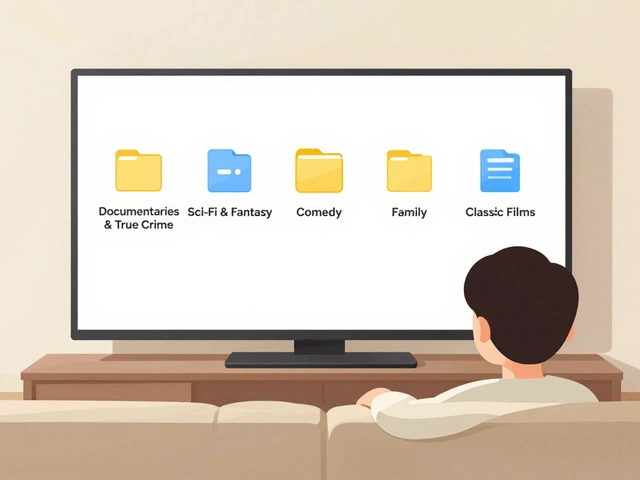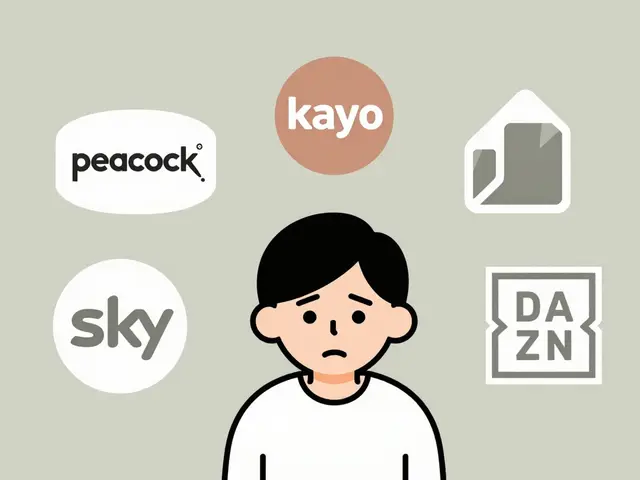20
Can You Trust Online Medicine Advice? Risks, Signs & Reliable Sources

Online Medical Advice Credibility Quiz
\n \n \n \n \n \n \n \n \n1. Who should author reliable medication advice?
\n \n \n \n2. Which domain is most likely a trustworthy health authority?
\n \n \n \n3. What indicates the information is up‑to‑date?
\n \n \n \n4. A reliable page should provide which of the following?
\n \n \n \n5. What is a red flag that suggests a site may be unreliable?
\n \n \n \nOnline Medical Advice is a digital source of health information that claims to guide users on medicines, symptoms, and treatment options. In a world where a search query can fetch a blog, a forum post, or a government portal in seconds, the question looms: can you trust what you read?
Why Trust Matters When It Comes to Medicines
Taking a medication based on a quick tip from a random website can lead to adverse reactions, drug interactions, or delayed professional care. A 2023 study by the International Journal of Clinical Pharmacology reported that 27% of patients who followed unverified online dosing recommendations experienced side effects requiring medical attention. The stakes are high because medicines interact with each other, with existing conditions, and with individual genetics.
How Misinformation Spreads Online
Social media platforms and user‑generated review sites act as echo chambers. A single Social Media Influencer sharing a personal anecdote about a “miracle cure” can generate millions of views within hours. Algorithms prioritize engagement over accuracy, amplifying sensational claims. Meanwhile, Disinformation Campaigns-often funded by rival supplement manufacturers-seed false narratives about conventional drugs.
Key Criteria for Evaluating Credibility
When you land on any page offering medication advice, ask these questions:
- Who authored the content? Look for credentials such as Medical Peer‑Reviewed Journal authors or licensed pharmacists.
- Is the source affiliated with a recognised Health Authority like the World Health Organization (WHO) or your national regulatory agency?
- When was the information last updated? Medicine evolves fast; a 2015 dosage table is likely outdated.
- Does the page cite primary research or official drug monographs?
- Are there clear disclosures about commercial sponsorship?
Trusted Sources at a Glance
Below is a quick comparison of the most reliable categories of online medical advice.
| Source Type | Accreditation | Review Process | Update Frequency | Typical Content |
|---|---|---|---|---|
| Official Health Authority Websites | Government or WHO endorsement | Expert panel review | Quarterly or as new guidelines emerge | Drug monographs, safety alerts, dosage charts |
| Medical Peer‑Reviewed Journals | Institutional peer‑review | Blind review by field specialists | Continuous (per article) | Clinical trial results, systematic reviews |
| User‑Generated Forums | None | Community moderation, no formal vetting | Ad‑hoc | Personal anecdotes, off‑label uses |

The Role of AI Symptom Checkers
Artificial intelligence tools like AI Symptom Checker promise quick triage. They process thousands of medical records to suggest possible conditions. However, they lack the nuanced judgment of a clinician and often rely on data that may be biased. A 2024 audit by the National Institute of Health Informatics found that AI symptom tools correctly identified the correct medication class only 68% of the time, with errors clustering around rare diseases.
Red Flags: When Advice Is Likely Unreliable
Spotting dubious advice is easier than you think. Watch for these warning signs:
- Over‑promising results (e.g., “cures diabetes in 7 days”).
- Lack of author credentials or vague “team of experts”.
- Absence of references to scientific literature.
- Heavy use of sales language - “buy now”, “limited stock”.
- Requests for personal health data without clear privacy policies.
Protecting Yourself in a Digital World
Here’s a practical checklist you can apply before acting on any medication tip you find online:
- Verify the author’s qualifications (pharmacist, MD, researcher).
- Cross‑check the information on an Official Health Authority site.
- Look for recent publication dates - medicine changes fast.
- Consult a licensed healthcare professional before starting or stopping any drug.
- Beware of hidden commercial motives; read the fine print.
By following this routine, you reduce the odds of falling for misinformation and keep your health decisions evidence‑based.
Beyond the Article: Where to Learn More
This piece sits within a broader Digital Health cluster that includes topics like telemedicine best practices, data privacy in health apps, and the future of personalized medicine. Readers interested in the regulatory side might explore Pharmacy Regulation guidelines, while tech‑savvy users could dive deeper into the algorithms behind AI Symptom Checkers.
Frequently Asked Questions
How can I tell if a medical website is really backed by a health authority?
Look for clear branding, a .gov or .int domain, and a statement of affiliation with agencies such as the WHO, FDA, or your country’s health ministry. Official sites usually list the governing body, provide a contact address, and publish up‑to‑date clinical guidelines.
Are user reviews on pharmacy apps reliable for drug safety information?
User reviews can highlight real‑world experiences but they are anecdotal and not peer‑reviewed. They often miss dosage nuances, drug interactions, or underlying conditions. Treat them as supplemental clues, not definitive medical advice.
What role does the FDA play in regulating online medical advice?
The U.S. Food and Drug Administration (FDA) oversees advertising of prescription drugs and verifies that online platforms do not make false claims about efficacy or safety. However, the FDA’s jurisdiction is limited to commercial claims; purely informational sites may escape direct regulation.
Can AI symptom checkers replace a doctor’s diagnosis?
No. AI tools can suggest possibilities based on pattern matching, but they lack the physical examination, patient history, and clinical judgment a doctor provides. Use them as a first‑step triage, not a definitive diagnosis.
Why do some websites claim “miracle cures” for serious illnesses?
These claims are usually driven by marketing goals, affiliate revenue, or outright scams. They exploit fear and hope, often using fabricated testimonials. Regulatory bodies frequently issue warnings because such statements can lead patients to forgo proven treatments.
What is the best way to verify drug dosage information found online?
Cross‑reference the dosage with the official prescribing information (PI) from the drug’s manufacturer, the FDA’s drug label database, or an accredited health‑authority website. When in doubt, ask a pharmacist or physician.









